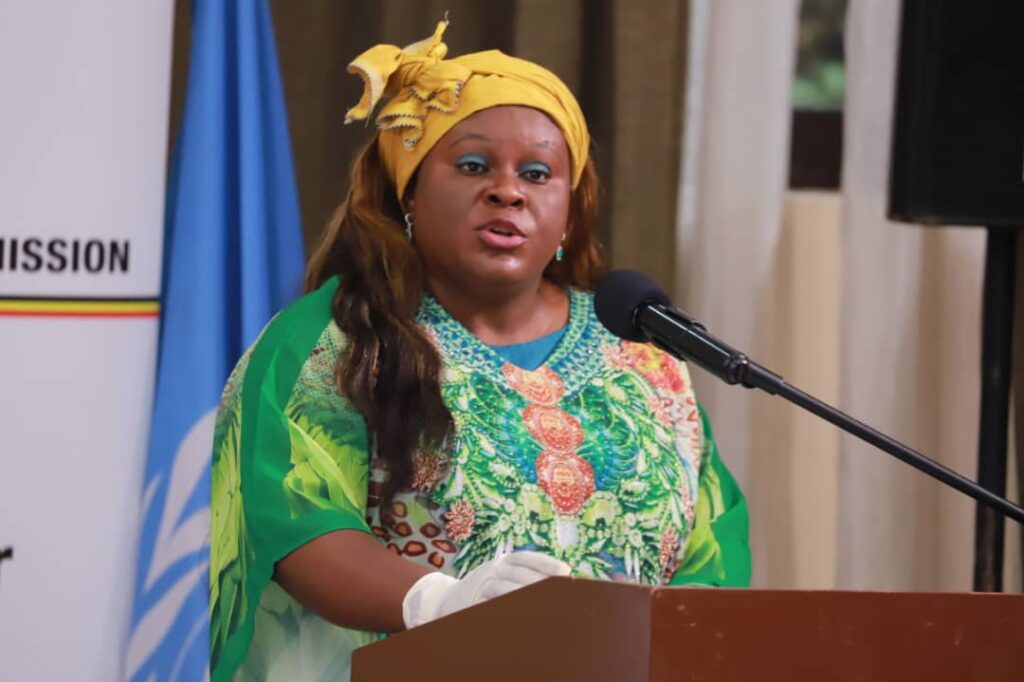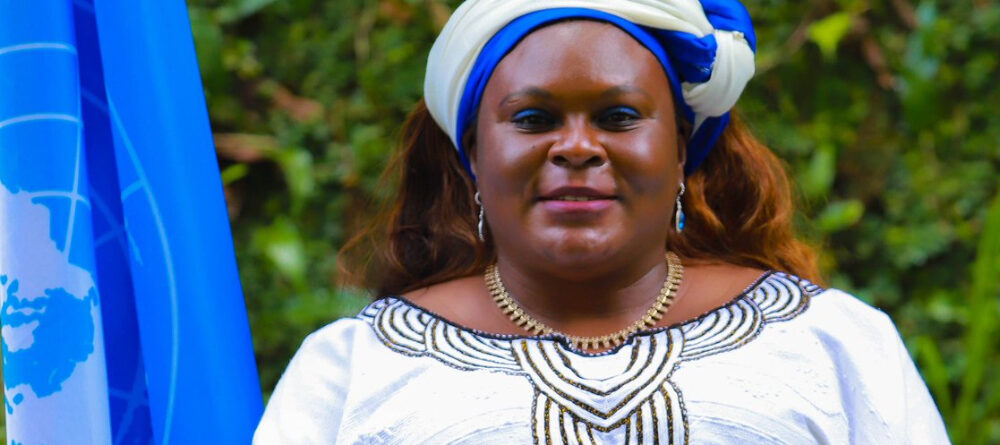Behind Rosa Malango’s Decision to Leave the UN
Behind Rosa Malango’s Decision to Leave the UN
By Culton Scovia Nakamya
When discussing diplomacy, Rosa Malango is a woman who ascended through various ranks until her retirement in 2023, choosing to focus on her family and business.
In the 1990s, a graduate of Mass Communication from the University of Lagos, Rosa began her diplomatic journey by volunteering as the executive assistant at the Embassy of Argentina to Nigeria, where she resided at the time. Diplomacy was not a new concept for her; her father, Tomas Malango Mbuamangongo Ekoka, was part of the first mission of Equatorial Guinea to the UN and a signatory of the Carta Magna when Equatorial Guinea became a member of the UN.
In 1994, she relocated to Angola to volunteer with the United Nations Children’s Fund. She served in various other countries until 2005 when she moved to New York to head the External Relations and Partnerships office for the coordination of humanitarian affairs. In 2015, she was promoted to head the Resident Coordinators office at UNDP in Guatemala. One year later, she was moved to Uganda as the UN Resident Coordinator and UNDP Resident Representative. Her tour of duty in Uganda ended in 2021, and she moved back to New York as the Director of Regional Commissions.
She resigned in 2023 to follow her passion.

What Influenced Her Early Retirement?
Tracing how she rose through the ranks, one might assume Rosa was at the peak, waiting for bigger assignments, but in an unprecedented turn, she left the UN. Rosa recently disclosed that her biggest regret was the death of her father before she became a mother. Her father, Tomas Malango, died in 2003.
In an interview, Rosa said her father was ill for several years, and she could barely find time to attend to him. The news of Mr. Malango’s demise found her on duty elsewhere, serving humanity, and it hit her the hardest. A few years ago, her mother started becoming ill, and memories of her ailing father without her attention resurfaced. It was at this point that she decided: enough of the humanitarian work.
“I missed being with my father because I was serving humanity. Two years ago, my brother started updating me about my mother’s challenges. I monitored the situation, and last year I told the Deputy Secretary-General that there’s no way I am going to repeat the same mistake I did when I lost my father. My mom’s health was fragile, and my first son was having health issues,” she said.
Adding, “I said I would not forgive myself if we lost my mother because I was serving the world. I said it’s almost 30 years, I need to say thank you very much and quit. I needed to focus on my kids and my mum full time,” said Rosa Malango.
The frequent shifts in locations and travels around the world had become tiresome. She struggled to settle somewhere because she was everywhere. Rosa disclosed that it was a miracle to get a child because of her nature of work.
“You’re almost never with your family. You are constantly in different places. It is difficult to set a route because you’re not there. It was a miracle for me to be a mother and still an international civil servant because you have to try to balance a lot, and you pay a price for it. Your family pays a price, and your kids. There’s a price for the service,” she said.
Rosa Malango has since settled in Uganda with her two children and her mother. While the mother’s health improved, she decided to embark on another venture, that’s business.
Rosa is now the board chair of Tumaini Africa Knowledge Centre (TAKC) based in Nagulu, Kampala. Besides empowering people to embrace culture through values of Ubuntu, TAKC works with emerging African entrepreneurs, women, the youth, governments, and the private sector, among others, to foster economic growth and positive impact.
“The dream is to be among the top ten Ugandan taxpayers within ten years. We are launching the market day to bring together women and youth entrepreneurs to bring items, network, and learn from each other but also connect to potential investors,” said Rosa.
Rosa as a UN Resident Coordinator in Uganda
For five years, Rosa lived in Uganda as the UN Resident Coordinator and UNDP country representative. A lot of diplomatic disputes, some of which could spell trouble, happened. In 2021, Uganda was notified of plans to relocate the UN regional base from Entebbe to Nairobi. The regional center serves 13 missions in Africa. President Museveni opposed the move, citing unfairness considering Uganda’s humanitarian services and its contribution to the peace mission in Somalia.
On several grounds, the UN retained the base. Rosa Malango weighs in on Uganda’s influence in the region. “Uganda, for a while, was known as the peacekeeper of the region, and that partly informs the footprint not just at the UN but internationally. Now Uganda is moving towards a more dynamic role in terms of the political economy of the region, so it would be interesting to see what’s happening,” she said.
Adding, “I have witnessed an East Africa that was four or five countries; now it’s seven or eight, so what does that mean?” she asked. While the UN maintained its regional center in Uganda, The United Nations Secretariat was unhappy with the Kampala establishment in 2023 for declining to renew the license for the operations of the UN Human Rights office in Uganda. The office existed since 2005 following Lord’s Resistance Army conflicts in northern Uganda.
Rosa declined to delve much into the details of this diplomatic fall.
During her tenure, the UN and the government hosted the largest refugee summit in Kampala. The summit was attended by world leaders, including the UN Secretary-General Antonio Guterres. Rosa, who once experienced life as a refugee, anticipated reshaping global migration perspectives using Uganda’s compelling case study.
“I know what it means to be welcomed somewhere else. Coming to Uganda and discovering that the country had this unique approach where host communities cohabited with refugees, encouraging them to farm and providing access to education and healthcare, was a story that needed to be told. I believed that we had an opportunity to showcase the Ugandan model of refugee hosting, which was based on Ubuntu,” she says.
END


Leave a Reply